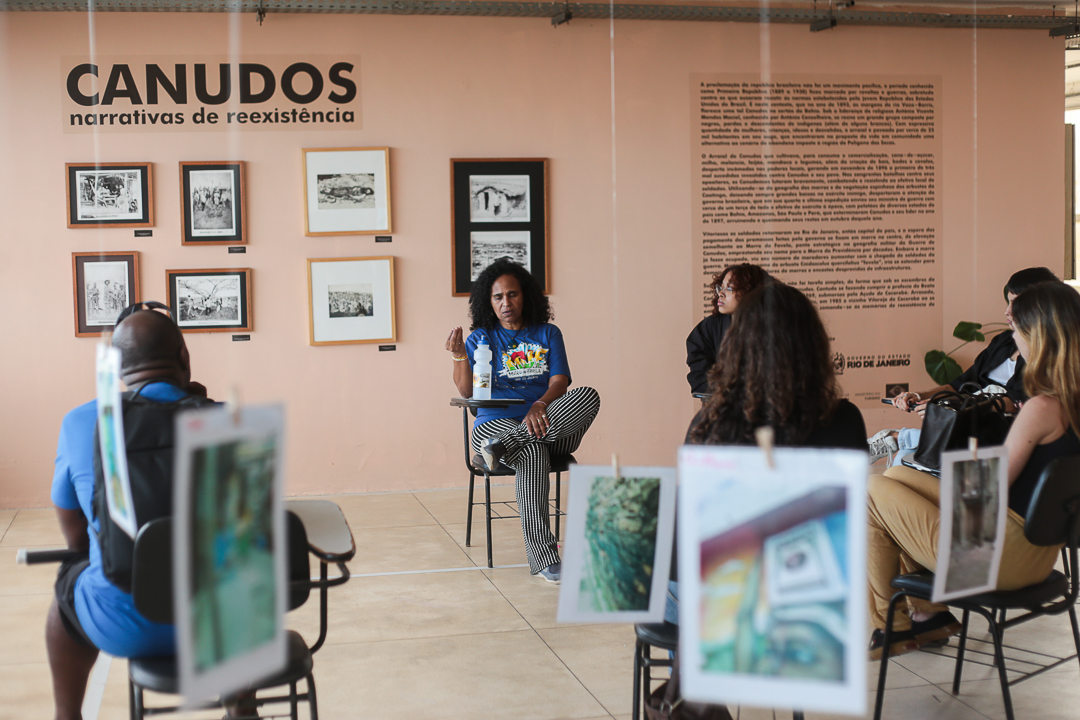
Brazil’s 21st Annual Museum Week took place from May 15 to 21, 2023, with the theme “Museums, Sustainability, and Well-being.” The Favela Museum (MUF), located in the Pavão-Pavãozinho and Cantagalo (PPG) favela complex in Rio de Janeiro’s South Zone, held a series of activities which RioOnWatch covered through this poetic account.
With a broad program of events, MUF welcomed people from across the city to discuss social museology as community power and the favelas as an open-air museum. With this in mind, the program included a tour of the history-telling mural-covered houses known as “Canvas-Homes” in the favela which are works of art in themselves; the First Looks exhibition at the Tia Elza Daycare Center featuring photography by young PPG students, a collective action to plant seedlings in the community garden, a capoeira workshop with Master Tartaruga, and a visit to the Canudos Exhibition at the Favela Museum led by UNIRIO museology students. All activities were aligned with the tone and aims decided by social museology movements for the week.
“For the 21st edition of National Museum Week, we are highlighting the essential role of museums in contributing to well-being, living well, and the sustainable development of communities where they have an essential role as spaces which foster awareness and strengthen identities and citizen participation.” — Brazilian Museums Institute
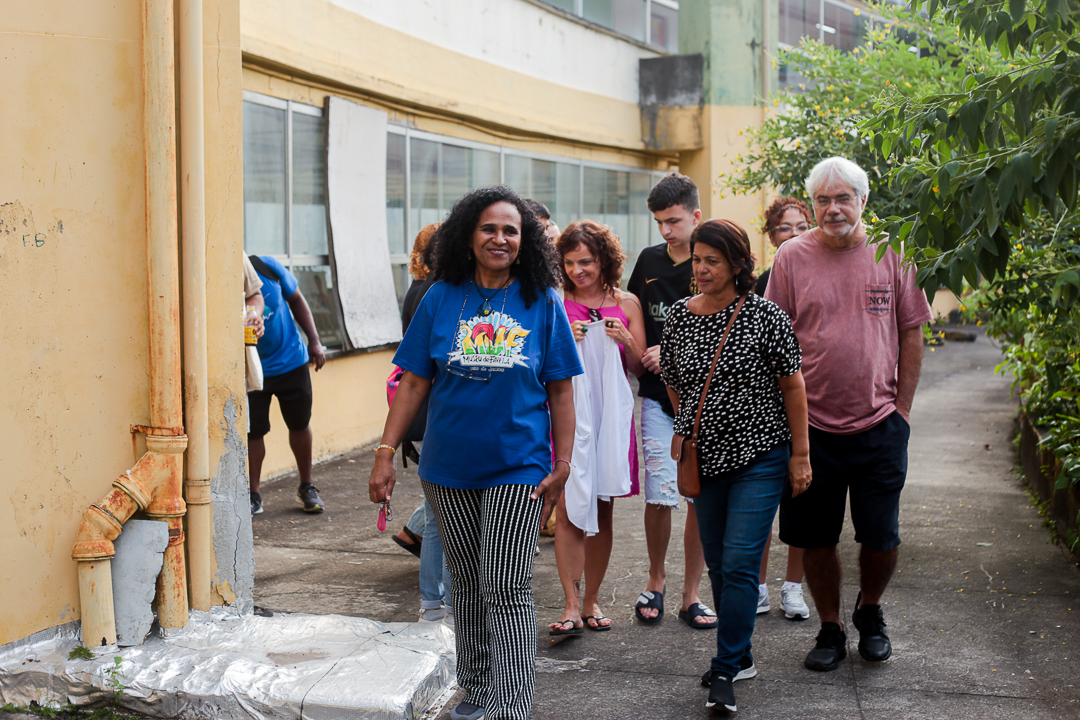
In this account in the form of a poem, poet, rapper, and photographer Marcos Vinícios tells of being in Cantagalo at the Favela Museum during Brazil’s 21st Annual Museum Week. The poem features a play on the favela’s name—Cantagalo—which in Portuguese means “rooster crows,” and is often locally shortened to Galo.
Dawn in Galo
“Today, even without the galo [rooster] crowing, as the poet says
The essence is maintained, history on the walls and experience on the tip of the tongue
Even with so much need you can see in the eyes the fate of wanting to be happy
Favela roots, even in the South [Zone] of the map
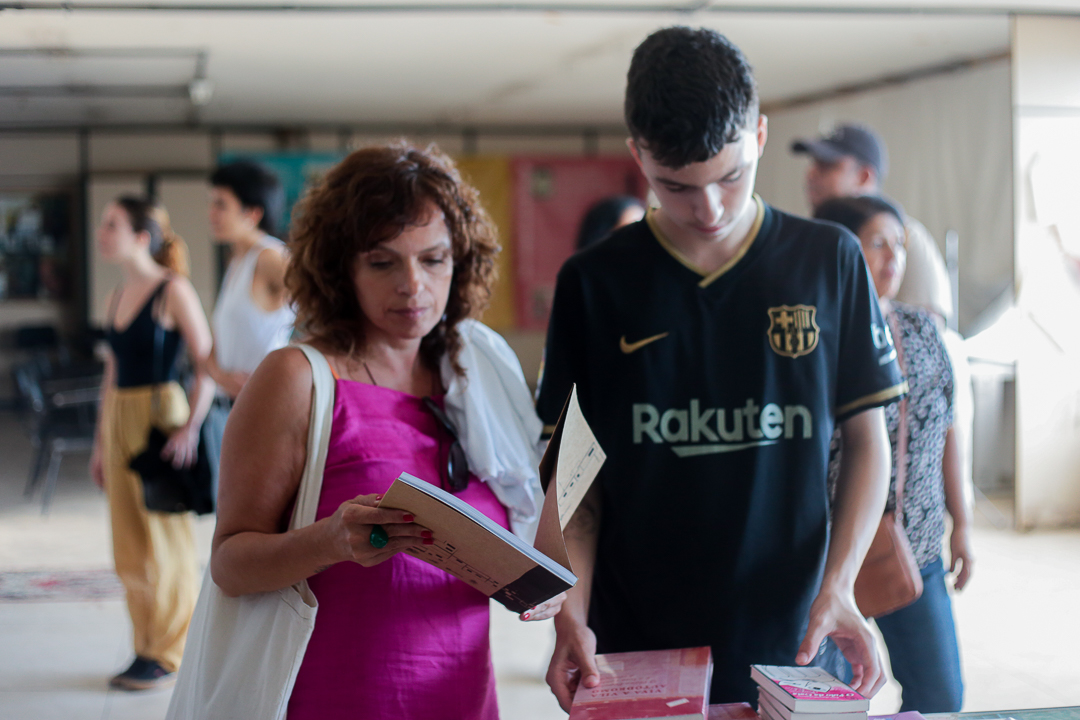
Where there are no tiers, everything blends together like rice and beans
North and Northeast are present, as much as those who are Rio to the core
At the feet of Christ, who seems to not look down from way up there
You see the lagoon, you see the forest, and the sea too
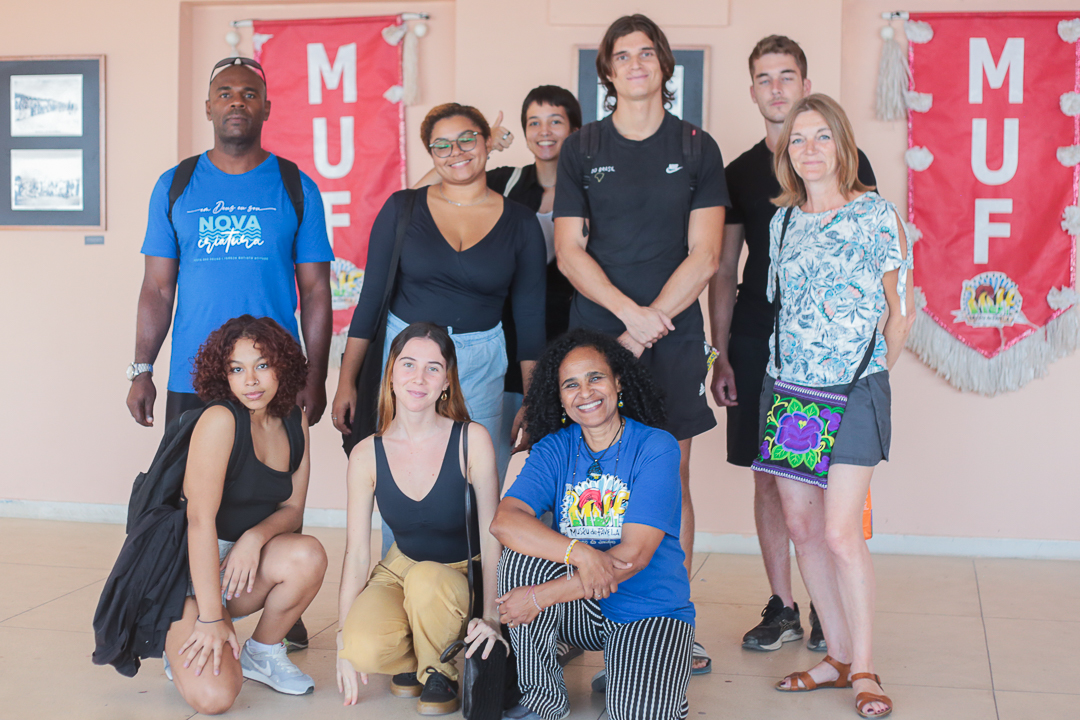
The Favela Museum guarantees the archaeology of the future, not only in the Canvas-Homes, or telling about Canudos.
You can be sure, I assure you that whoever goes there will like it
There’s no way you can go around with Márcia and not understand remotely the whys of the place
There’s so much!
And there’s no one she doesn’t know.
She reminds those who’ve forgotten!
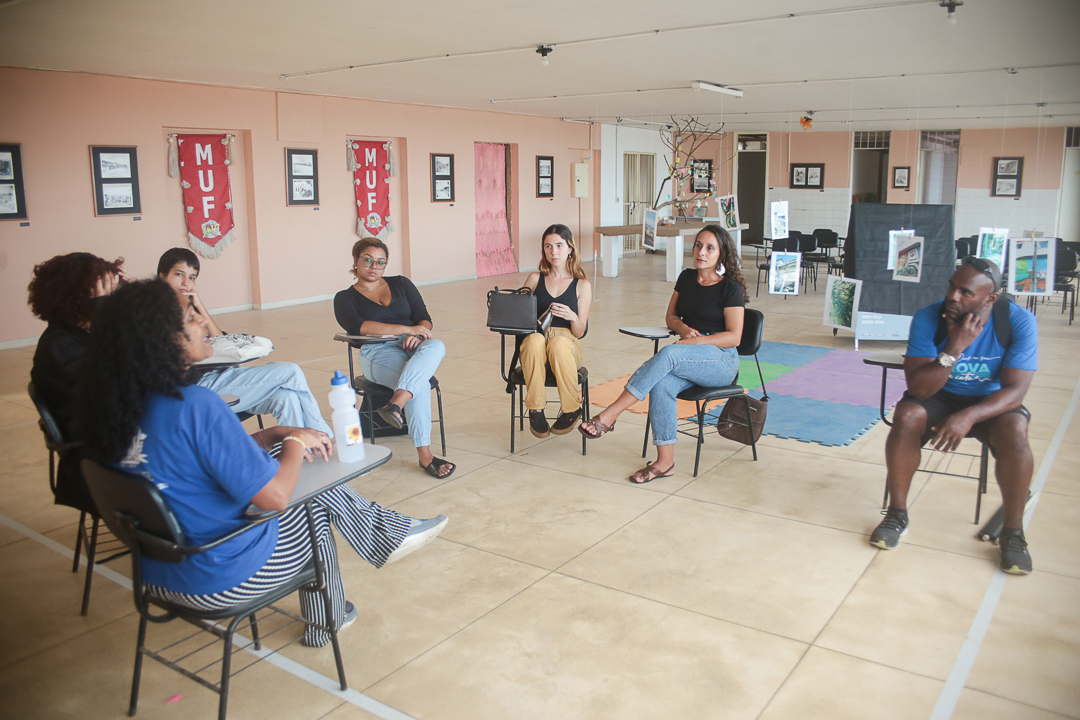
Even with problems, we keep the faith
With Christ not seeing
We pray to Oxalá that, even coming from all the way over there, He may look to us who are here.
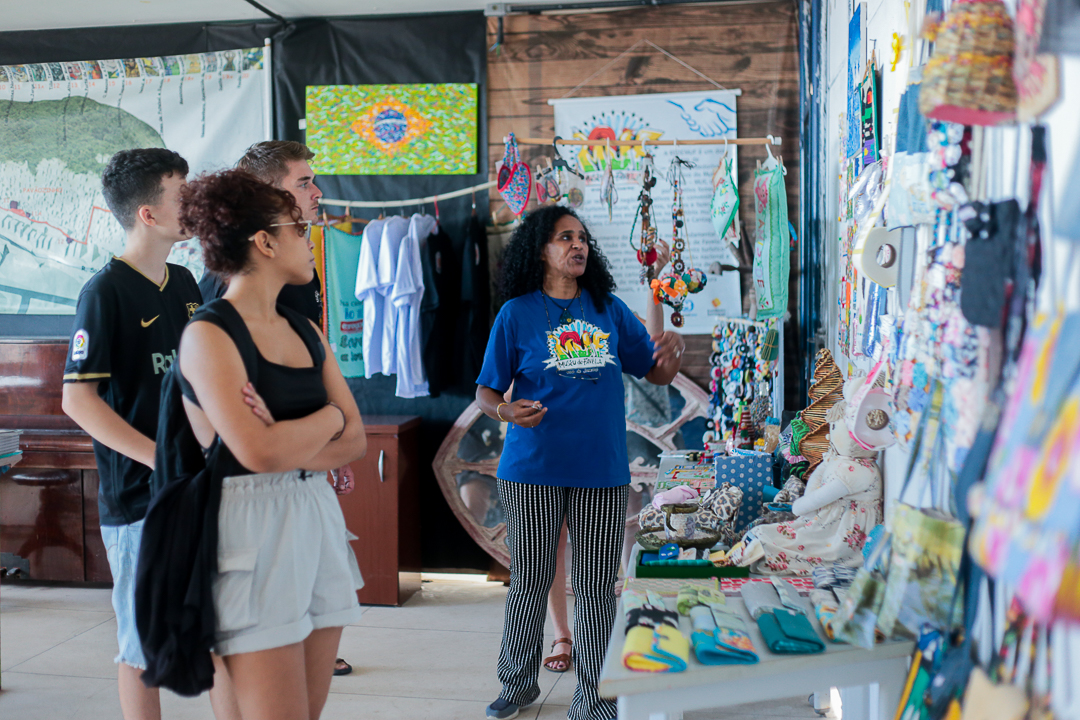
Open-air museum, of stone, concrete, and paint.
That colors the life others try to leave empty and plain.
Fertile land for the artist, that doesn’t rely on the hustle for anything.
Going down the hill just to swim, because the sea is public, inheritance from Mother Iemanjá
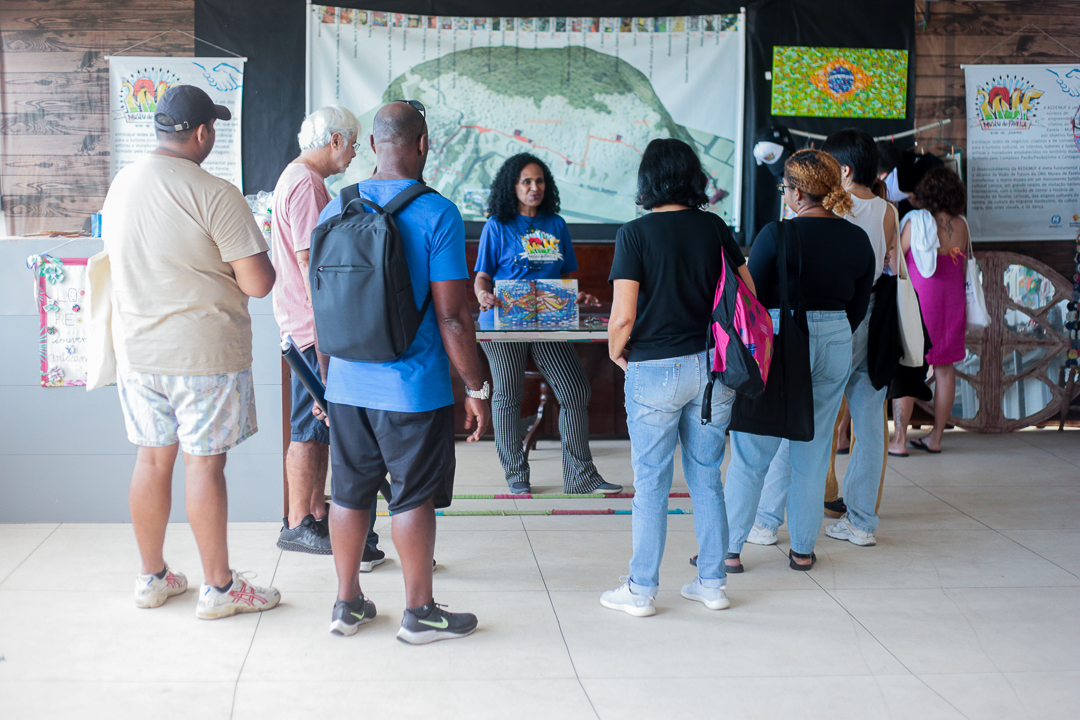
Even with hunger, you’re fed,
By labor, art, and culture.
Those coming from outside explore, eat, drink, and think it’s great.
They soon go, don’t come back, and think they know everything.
Kaô just to salute my father Xangô.
And may He hear our prayers when night falls,
With the certainty that a new day will come.
The most beautiful dawn in Rio is when the Galo rises.”
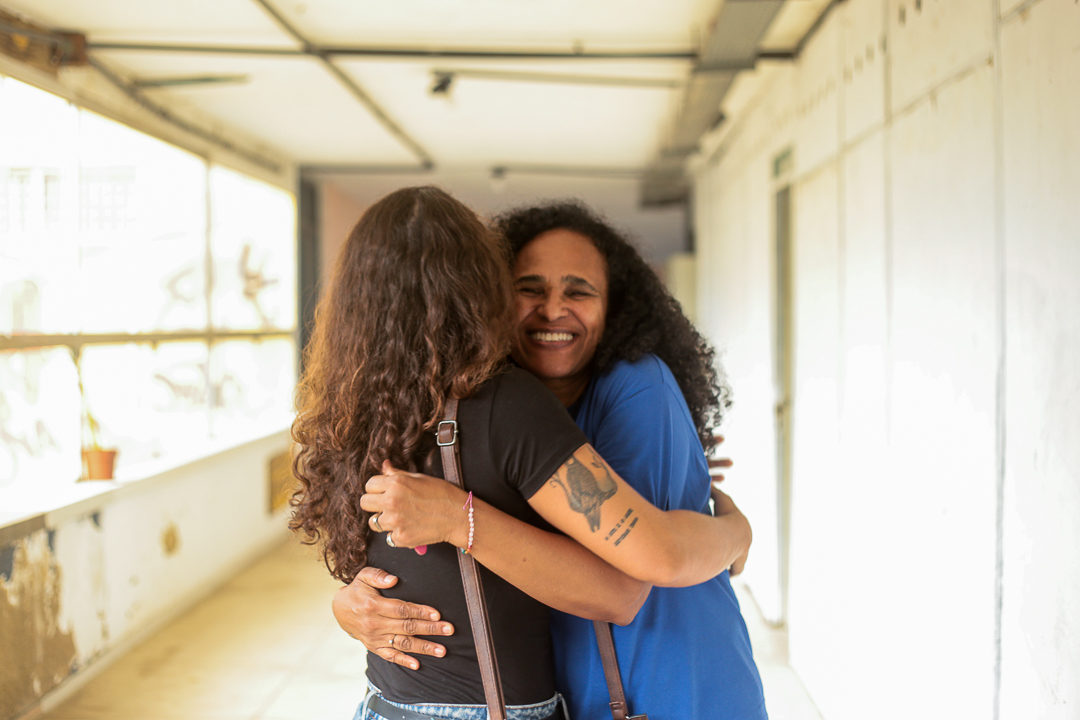
About the poet: Marcos Vinicios de Souza is a dancer, photographer, filmmaker, producer and actor born and raised in Morro do Fogueteiro. He began his artistic journey at age 15 through dance. In the audiovisual arts, he attended the CriaAtivo Film School, permeating various forms of expression to record and tell his story and the stories of those around him.
